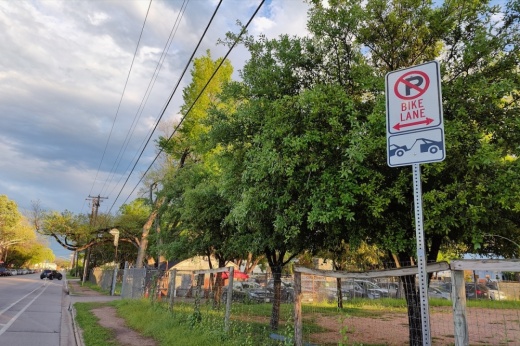What happened
City Council members said they're addressing concerns about injuries and deaths as a result of vehicles regularly sitting in bike lanes, and responding to new civic mobility plans that call to prohibit parking in those routes.
“Bike lane blockages are a major issue throughout the city but especially in District 9 where we have all of downtown," council member Zo Qadri said. "For a lot of folks it might be a minor inconvenience, but for some folks ... it’s a difference between an uneventful bike ride and at times a deadly car crash."
A resolution from council member Paige Ellis unanimously approved April 4 asks for the city to:
- End parking in most bike lanes and bikeways across Austin
- Place new signage, markings or barriers to inform drivers of the change
- Expand the Transportation Mobility Service Officer e-bike fleet to help tackle enforcement
- Create a volunteer program allowing residents to cite violators—if conflicts with state law can be resolved
Updates to city code that'd ban bike lane parking could be finalized by the end of October. Once in place, a six-month grace period would allow the city to roll out a public education and outreach campaign before any Austinites are cited.
Additionally, first-time violators could have their tickets waived by completing a training program in the future.
Quote of note
“I know there’s a lot of folks in town that see bike lanes, and they may never ride a bike and they may never use them, and so they drive past them every day, and they think they’re just taking space that could be used otherwise. But the truth is, if you are on a bike and you are in that bike lane, you have been blocked by a car," Ellis said. "This is something that may seem like a very momentary impact for the individual who is pulling out of the traffic lane, but it has very real consequences. ... These can be life-changing; people can get killed by having to swerve out of a bike lane unexpectedly with only the protection of a bike helmet."
Zooming in
Since last August, Parking Enterprise Manager Joseph Al-Hajeri said Transportation Mobility Service Officers have cited more than 300 vehicles and ended up towing nine cars for bike lane parking. This year alone, Austin 311 logged more than 400 complaints about parking violations in bike paths.
Al-Hajeri said council's ask for additional e-bikes for mobility officers is needed given their workload and with transportation officials hoping to fund more officer positions in the near future.
“The number of customer service requests for just bike lane enforcement alone, we really need to have the ability to expand that out,” he said.
Council's move to increase bike lane enforcement also follows longtime consideration of the issue by the Urban Transportation Commission that has forwarded multiple recommendations on the topic to council.
The new parking policies and volunteer enforcement idea that are now moving forward fall short of the UTC's previously-proposed "bike lane bounty" concept. Under that initiative, any Austinite who spotted a blockage in the bike lane could have reported violators to the city and possibly earned a cut of any fines.
However, Al-Hajeri said city staff believe such a program would be illegal under Texas law—although they're still evaluating options for volunteer enforcement given some "gray area" in state code. He also noted there could be issues with directing fines that typically flow into Austin's general fund to individuals.
Also of note
In addition to parking in bike lanes, officials are also looking to adjust how commercial vehicles loading or unloading goods on city streets might interact with cyclists.
Today, the city issues loading permits allowing vehicles to stay in travel lanes around the downtown area only. Drivers are generally meant to block vehicle, rather than bike, lanes during that activity. Al-Hajeri said staff hope to eventually expand the permitting process citywide to better manage loading on roadways outside Austin's core.





